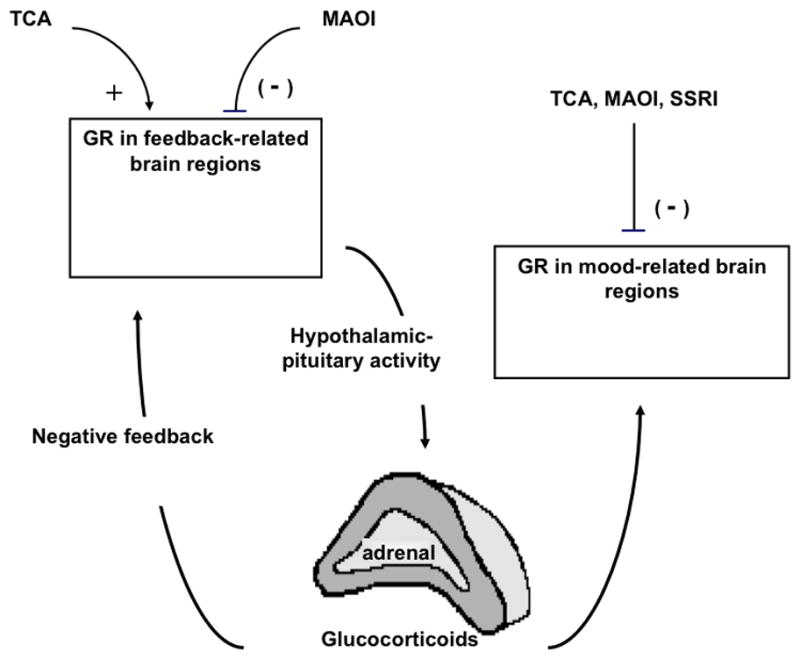Figure 4.

Proposed model for glucocorticoid receptor (GR) -related effects of antidepressant effects on hypothalamo-pituitary-adrenocortical (HPA) axis activity and mood. Representative tricyclic (TCA) (imipramine) and monamine oxidase inhibitor (MAOI)(phenylzine) antidepressants have opposing effects on HPA activity, potentially via opposing effects on GR in feedback sites within the forebrain. The ability of TCA to facilitate and MAOI to impair glucocorticoid feedback could contribute to normalizing HPA activity in melancholic or atypical depression, respectively. The selective serotonin reuptake inhibitor (SSRI) fluoxetine did not exhibit marked effects on HPA activity and is not included in this part of the model. Antidepressants could also regulate mood through direct and indirect effects on GR. TCA, MAOI, and SSRI antidepressants had similar effects to inhibit GR expression and relieve GR-mediated inhibition of monoamine-synthesizing enzymes in the locus coeruleus and dorsal raphé nucleus, which could contribute to the increases in norepinephrine and serotonin thought to be important to antidepressant response. Alternatively or in addition, changes in GR in HPA feedback-related regions (observed primarily for TCA and MAOI) could indirectly affect glucocorticoid-sensitive mood centers by raising or lowering glucocorticoid levels.
